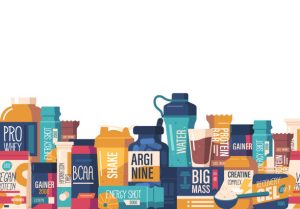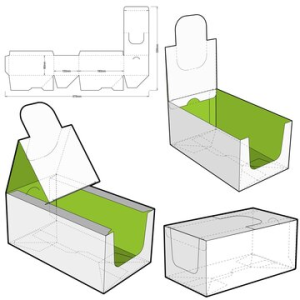When it comes to parenting, it’s important to differentiate facts from myths. One common question among new parents is, “When should my baby start drinking water?” This simple question is fraught with truth and myth and is fundamental to infant care.
Table of Contents
ToggleUnderstanding The Basics
The American Academy of Pediatrics advises that your baby relies purely on breast milk or formula for nutrition and hydration for the first six months. Giving water too early can be risky, as their little kidneys might not be strong enough to filter water properly. Let’s break down the scientific reasoning behind it.
In the First Six Months
During this pivotal development stage, the answer to the water question is unambiguous: no water intake is necessary unless explicitly advised by a pediatrician. Rationally, the immediate query that follows is, “why?” Here’s what the science shows:
Breast Milk or Formula is Enough
Breast milk is truly an incredible substance. It comprises about 80% water, particularly the first milk, known as foremilk. This highly hydrating component efficiently quenches your baby’s thirst and satisfies their hunger simultaneously.
If your baby is formula-fed, the same principle applies. When prepared following the guidelines, the formula also comprises a significant percentage of water. Parents must be particularly cautious not to over-dilute formula. Over-dilution can induce a dangerous condition called water intoxication, which we’ll discuss in the next section.
Kidney Development
At birth, babies have immature kidneys that continue evolving during the first year of life. In the first six months, these tiny organs lack the ability to process a large volume of water. Overloading this developing system with excess water might result in a hazardous situation known as water intoxication.
Water intoxication occurs when excess water dilutes the sodium level in a baby’s body, leading to seizures, coma, or even, in severe cases, death. Therefore, it is vital to stick to the “no water for the first six months” guideline unless otherwise directed by your pediatrician.
Picking the Right Water for Formula Preparation
Choosing the correct water for mixing baby formula is crucial for your infant’s health. Here are some tips to ensure the water you use is safe and suitable:
- Use Safe Water Sources: Ideally, use bottled baby water or water labeled as nursery water, which is specifically designed for mixing infant formula. These are available in grocery stores and pharmacies.
- Boil Tap Water When Necessary: If you’re using tap water, consider boiling it first to eliminate any potential pathogens, and let it cool down to an appropriate temperature before mixing.
- Avoid Unpurified Well Water: Well water might contain high levels of minerals or contaminants. If well water is your only option, have it tested regularly to ensure it’s safe for consumption.
- Consider a Water Filter: If you’re using city water, a filter can remove certain chemicals and impurities but ensure it doesn’t demineralize the water, as certain minerals are essential.
- Check Fluoride Content: Be mindful of the fluoride content in water, as too much fluoride can lead to mild dental fluorosis. If you have concerns, consult your pediatrician for guidance on water with appropriate fluoride levels.
- Avoid Mineral-Rich Waters: Water with high levels of minerals (often labeled as “mineral water”) is not suitable for making infant formula as it can cause an imbalance in nutrients and potentially burden your baby’s kidneys.
- Steer Clear of Softened Water: Water from a softener might have high sodium levels, which isn’t good for babies. It’s best to use water that has not been through a sodium-based softening process.
- Mind the Expiry Date: Believe it or not, bottled water has an expiry date. Always check this before using it to prepare formula to ensure it’s fresh and safe for consumption.
- Proper Storage: If you open a large bottle of water to use for formula, store the remaining water in a cool, dry place to limit the growth of bacteria.
- Prepared Formula Guidelines: After preparing the formula with the chosen water, follow the storage guidelines precisely. This often means using the formula within one hour or storing it in the refrigerator immediately for later use.
- Consult with a Pediatrician: It’s always a good practice to discuss water choices with your pediatrician, especially if you have any reservations or your baby has specific health concerns.
After the First Six Months
After reaching the six-month milestone, your baby starts exploring solid foods – a thrilling time for both of you! During this stage, you may begin introducing a few sips of water during meals, but remember, moderation is essential. The prime source of nutrition should still be breast milk or formula, complemented by an array of nutrient-dense solid foods.
Dealing with Common Myths
When it comes to baby care, misinformation can be concerning. It is vital to debunk common myths associated with babies and water.
Myth 1: Water Eases Constipation in Babies
Fiber and water are indeed adults’ go-to remedies for constipation. Does this hold true for newborns? Not quite. It rarely occurs that breastfed babies experience constipation. While formula-fed babies may encounter this issue, there are better approaches than offering water as a solution. It is always safer and more effective to consult a pediatrician about managing baby constipation.
Myth 2: Water Helps Babies Sleep Longer
The belief that giving water to ‘fill up’ your baby, hoping they may sleep longer, is nothing more than an unfounded myth. Although this might seem logical, it is potentially dangerous. Babies need essential nutrient-dense calories to promote their growth, development, and sleep cycle – something water simply cannot provide.
Myth 3: Babies Get Thirsty
As adults, we instinctively reach for water whenever we feel thirsty or during hot weather, leading many to assume the same applies to babies. However, even in a hot climate, babies do not require extra water intake. They get all the necessary hydration from breast milk or formula.
Myth 4: Water Does No Harm
This myth assumes water is an inert substance, harmless in any amount. Yet, for infants, water must be introduced carefully. Excess water can lead to malnutrition, as it can fill an infant’s small stomach and replace nutrient-rich milk. This is particularly important to note for babies starting on solid food, as parents might overestimate the hydration provided by certain foods.
Myth 5: Water is Better Than Milk for Sick Babies
Some might believe that water is gentler on a baby’s system during sickness than milk. On the contrary, if a baby can breastfeed or take a bottle, they must do so. Breast milk or formula provides hydration and vital nutrients supporting the immune system. Moreover, they carry more antibodies, especially when the baby is ill.
Myth 6: Teething Requires Additional Water
Teething can be stressful, and a common myth suggests that giving water can soothe an infant’s sore gums. While a chilled teething ring can offer relief, extra water isn’t necessary and can disturb the nutrient balance.
Myth 7: Adding Water to a Baby’s Diet Helps With Heat
Parents naturally worry about their little ones during warmer weather. The myth here is that water is needed to keep babies calm. As long as babies are appropriately clothed, kept in the shade, and breastfed or formula-fed on demand, they are adequately protected against heat-related dehydration.
Myth 8: If a Baby is Thirsty, They Need Water
We assume when we feel thirsty, we should drink water. However, infants’ hydration needs are different. Breast milk or formula satiates a baby’s thirst. If an infant seems excessively thirsty or dehydrated, it should prompt a visit to the pediatrician, as this might be a symptom of a larger issue.
Conclusion
The journey of parenthood is a blend of joy, surprise, confusion, and a myriad of questions. While generalizations rarely work, as every baby is unique, science offers a clear guideline when it comes to water. Stick to breast milk or formula for the first six months, gradually introducing water after this period, ideally during mealtimes.
However, remember that your pediatrician is your most reliable source of knowledge and guidance. Always consult them regarding all aspects of your baby’s diet and nutrition. In this momentous voyage of raising a tiny human, it is always better to cross-check and dispel myths, ensuring your baby’s safe and healthy growing environment.
More Stories
Thriving in Later Years: Elevating Your Life with Health and Vitality
As we adventure through life, one of the most profitable chapters is absolutely our later years. Far from a duration...


